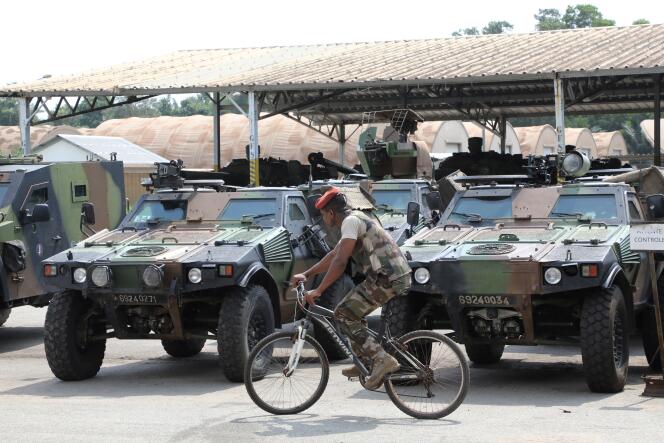


After intense discussions, the French president has finally decided on the future of the three French bases on the West African coast. After months of uncertainty regarding the armed forces' future, pending a verdict from the Elysée, Emmanuel Macron, based on Le Monde's sources, opted for a significant reduction of military personnel in Gabon, Senegal, and Côte d'Ivoire during a defense council meeting in mid-December 2023.
At this stage, the precise number of French soldiers to be maintained at these bases in Libreville (Gabon), Dakar (Senegal) and Abidjan (Côte d'Ivoire) has not been set in stone. However, according to senior officers in the French Army, the primary group impacted, the intended cutbacks are significant. In the most drastic scenario being considered, only around 100 posts, mainly in support functions, will be kept permanently in each of the three cities.
For the Libreville and Dakar bases, which in recent months officially housed 350 military personnel each, and for Abidjan, France's logistical hub for its Sahel operations, which was home to some 950 soldiers, this downsizing is a turning point. The president has not, however, decided to close them – a move that had previously been considered. Conversely, the French presence in Djibouti and Chad (1,500 soldiers in each case) remains unchanged.
"There's no change of axis," was the message from the Elysée, pointing out that the strategy of reducing France's military presence in Africa had been on the cards since February 2023, which the president announced on the eve of a tour of the continent. "But there are factors that led to progress being made," the source added. "We want to move away from a model where we had a significant presence in the capitals to a much smaller footprint."
The coup d'état in Niger in July 2023 played a decisive role in this restructuring. The forced withdrawal, under pressure from the putschists, was completed at the end of December and followed those in Mali and Burkina Faso. Now, both at the Elysée and in the military leadership, people say they're in a hurry to progress. "We'd like to move quickly," said the French president, while pointing out that the "technicalities" need to be discussed with the partner countries.
According to French Army leadership, the plan is to limit the number of military personnel stationed with their families, which had given rise to the image of France as operating in isolation in order to create bases that are seen as simple "caretaking posts." In other words, bases with limited visibility but where it will still be possible to vary the number of personnel for specific missions, with "the idea of troop movements according to the needs of partners (...) who each have their own distinct requirements," according to the Elysée.
You have 40% of this article left to read. The rest is for subscribers only.
